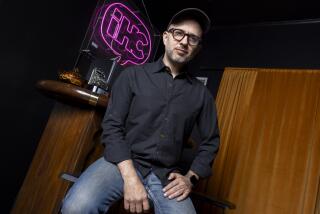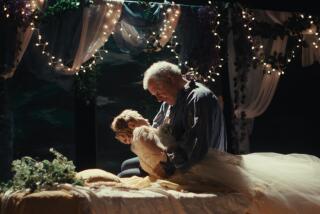When theaters went dark in 2020, this L.A. dance residency made inventive use of empty venues
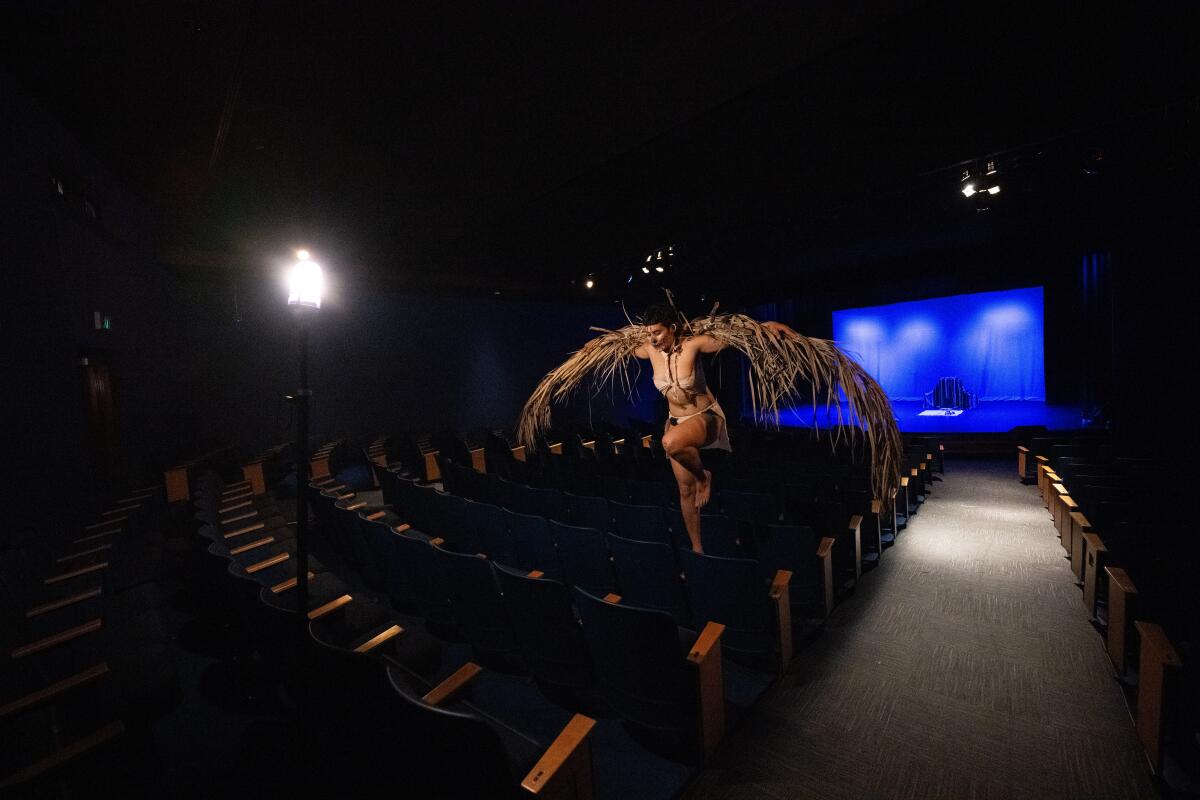
- Share via
In March 2020, California Gov. Gavin Newsom issued a stay-at-home order as COVID-19 spread across the globe. People were left at home to their devices — literally.
Theaters went dark and artists’ livelihoods were suspended indefinitely. As L.A.-based dancer Kevin Zambrano witnessed time pass and theaters remain shuttered, he had an idea for a residency program that would allow artists to create while keeping everyone safe. The initiative would give one solo dance artist an entire venue to themselves, so they could have the opportunity to develop new works in a performance space.
In 2021, Zambrano created the Ghost Light Residency. He reached out to Bret Easterling of the nonprofit organization BeMoving to assist in the residency’s creation; Easterling became co-director. As the group prepared to launch, they brought on producers Loni Rodgers and Sadie Wilking. Funding began with a Kickstarter campaign supported predominantly by dance lovers and practitioners. The Ghost Light Residency team then reached out to venues operated by the Los Angeles Department of Cultural Affairs.
“We’re trying to allow these artists to come in and disrupt these spaces,” Zambrano says.
Artists accepted into the residency had five days, or roughly 20 hours, to work on anything they wanted with no strings attached. Two years later, as COVID restrictions continue to fade, Ghost Light Residency continues to offer artists opportunities to explore and has cemented itself as a resource for the dance community.
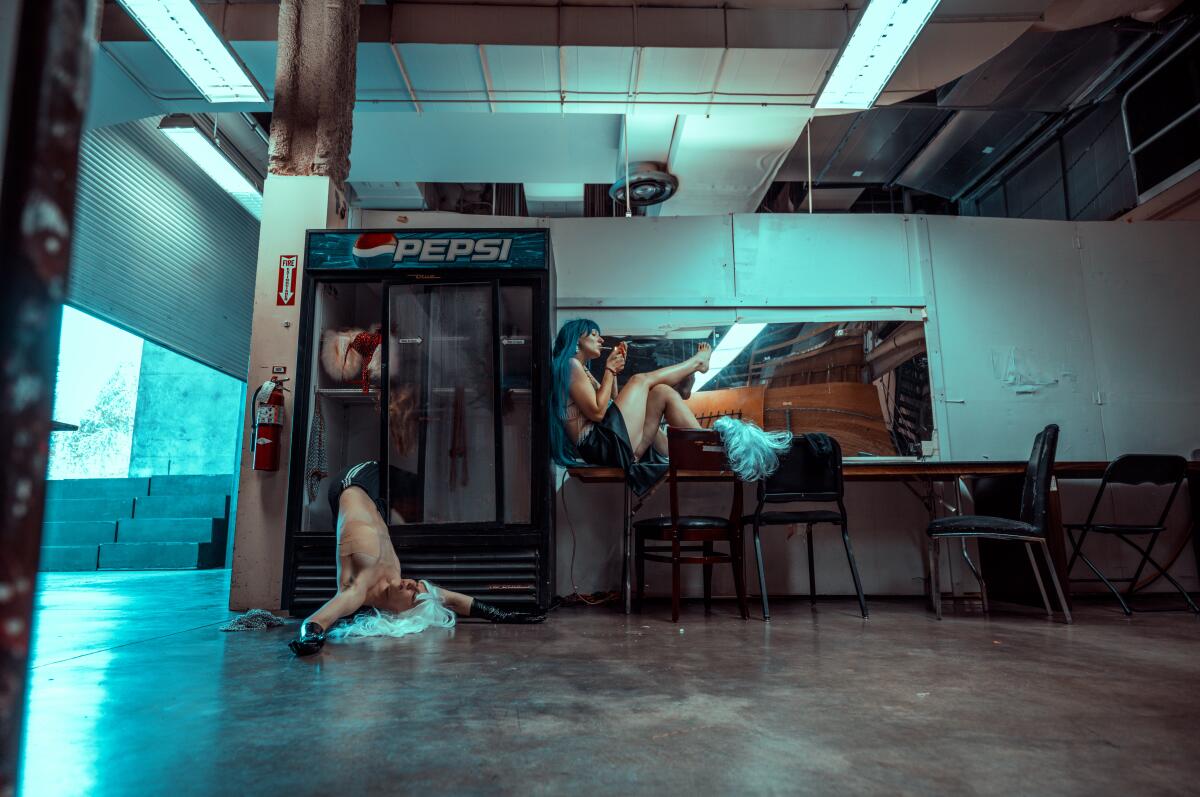
The program’s name — Ghost Light — refers to the single electric light left on in unoccupied theaters. For each cycle, Ghost Light chooses two L.A.-based dance theater artists by lottery, many of them from underrepresented communities, to take part in the residency. During their allotted time, artists can make use of anything in the theater: the stage, lights, sound, backstage, audience seats and more. Toward the end of the residency, Ghost Light’s in-house photographer, Josh S. Rose, and a video team, RYBG, document the resident artists’ work. As the program moves forward, live performances are being presented.
“The mission has always been to invest in artists who are from marginalized communities to give them proper time and space to do what they do,” Easterling says.
Jasmine Orpilla was one of Ghost Light’s first resident artists. Orpilla, a Ilokana/x American vocal performance artist who weaves music of the Philippine diaspora with folk ritual dance, applied during a time that felt like “the edge of survival.”
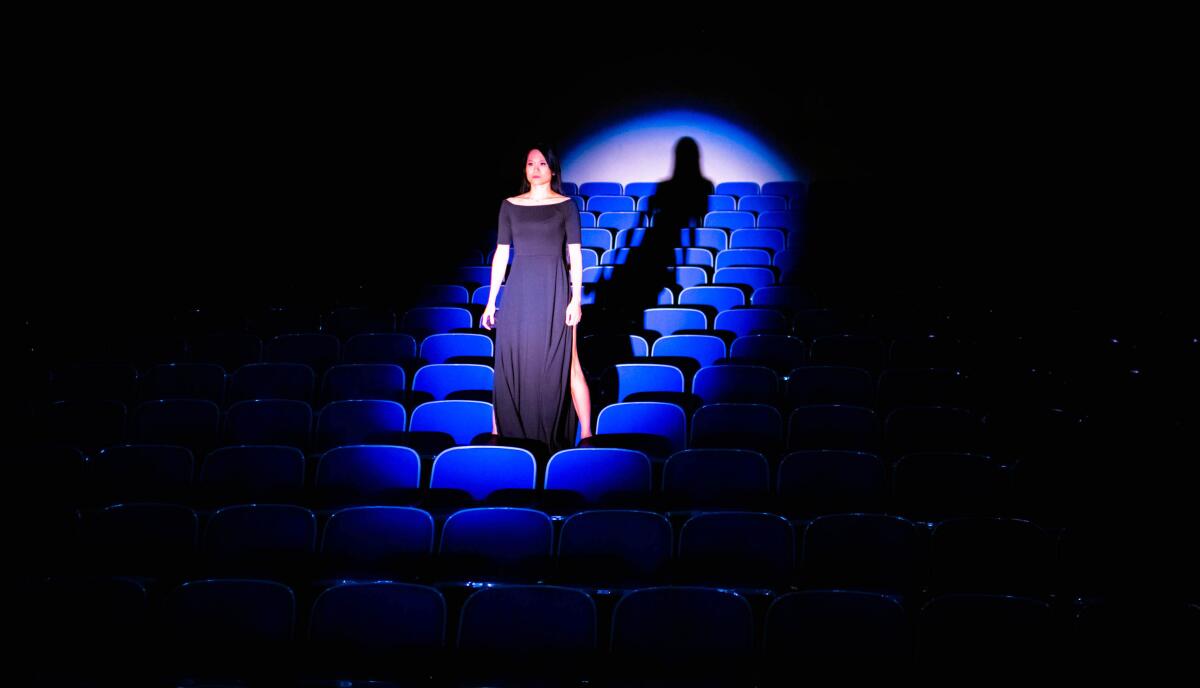
“When I got the call, I was floored by what it was that they were offering,” Orpilla says. “It was a huge gift, actually, and the timing was absolutely perfect.”
Orpilla chose to make a short film during her time at the Madrid Theatre in Canoga Park. In the piece, she imbues her sung music with movements inspired by her culture. At one point she plays a traditional Filipino game for kids, making faces to move a coin from her forehead to her mouth, as she stands behind a picture frame. In the next moment, she is hidden behind seats in a theater and slowly reveals her limbs from the backrests. These installations are used to “create a living human ghost light beacon using my body and the entire theater,” she says.
Some parts she filmed on her own; RYBG helped with others. The work is informed by her family history as well as grief stemming from the pandemic and uncertainty at the time. It led to awards: the 2023 COLA Artist Fellowship and the 2023 Creative Capital Wild Futures: Art, Culture, Impact Award.
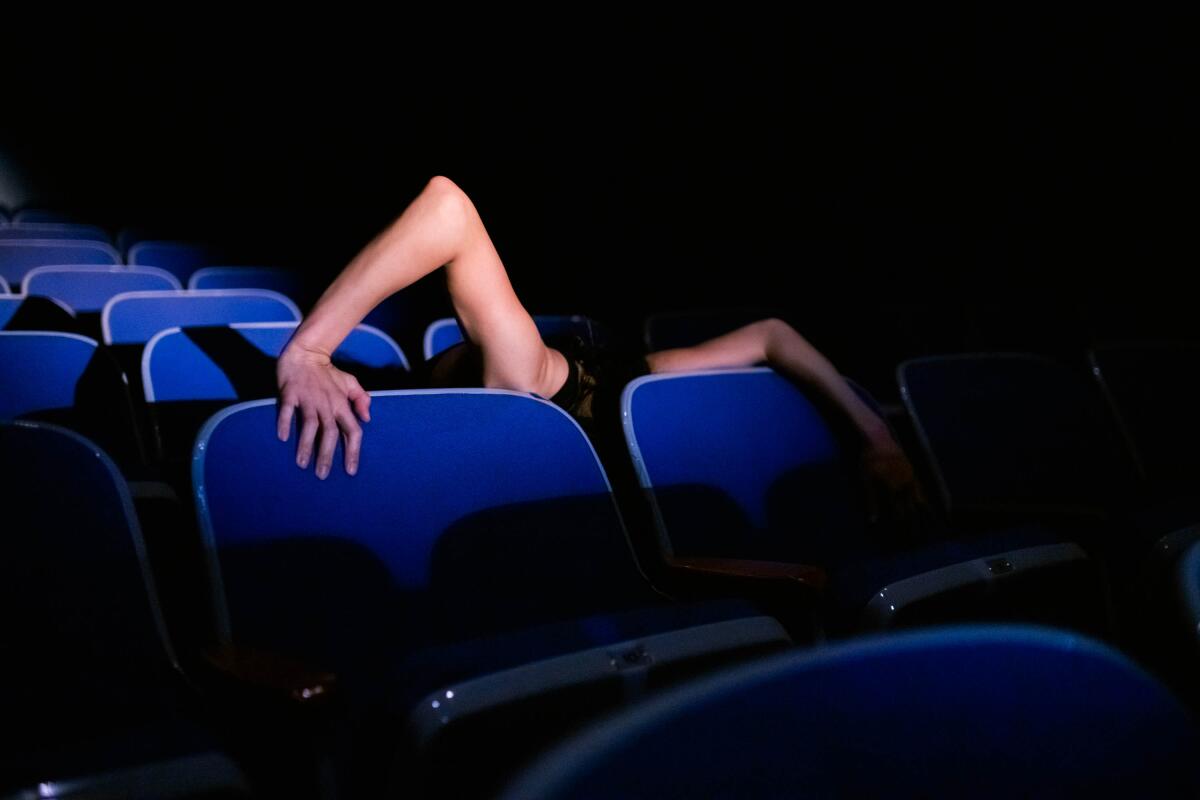
“It really sparked something in me and I carry that energy forward,” she says.
Although Orpilla came into the residency with a final film in mind, Zambrano says that there’s no pressure for artists to leave with a full-fledged final product, though that’s certainly possible. “The artists can use the time and space however they are needing,” he explains. This year’s residents, Yoli and duo Lena Martin and Mak Thornquest, presented their work at a Ghost Light Pop-Up event at the Barnsdall Gallery Theatre in East Hollywood on July 6.
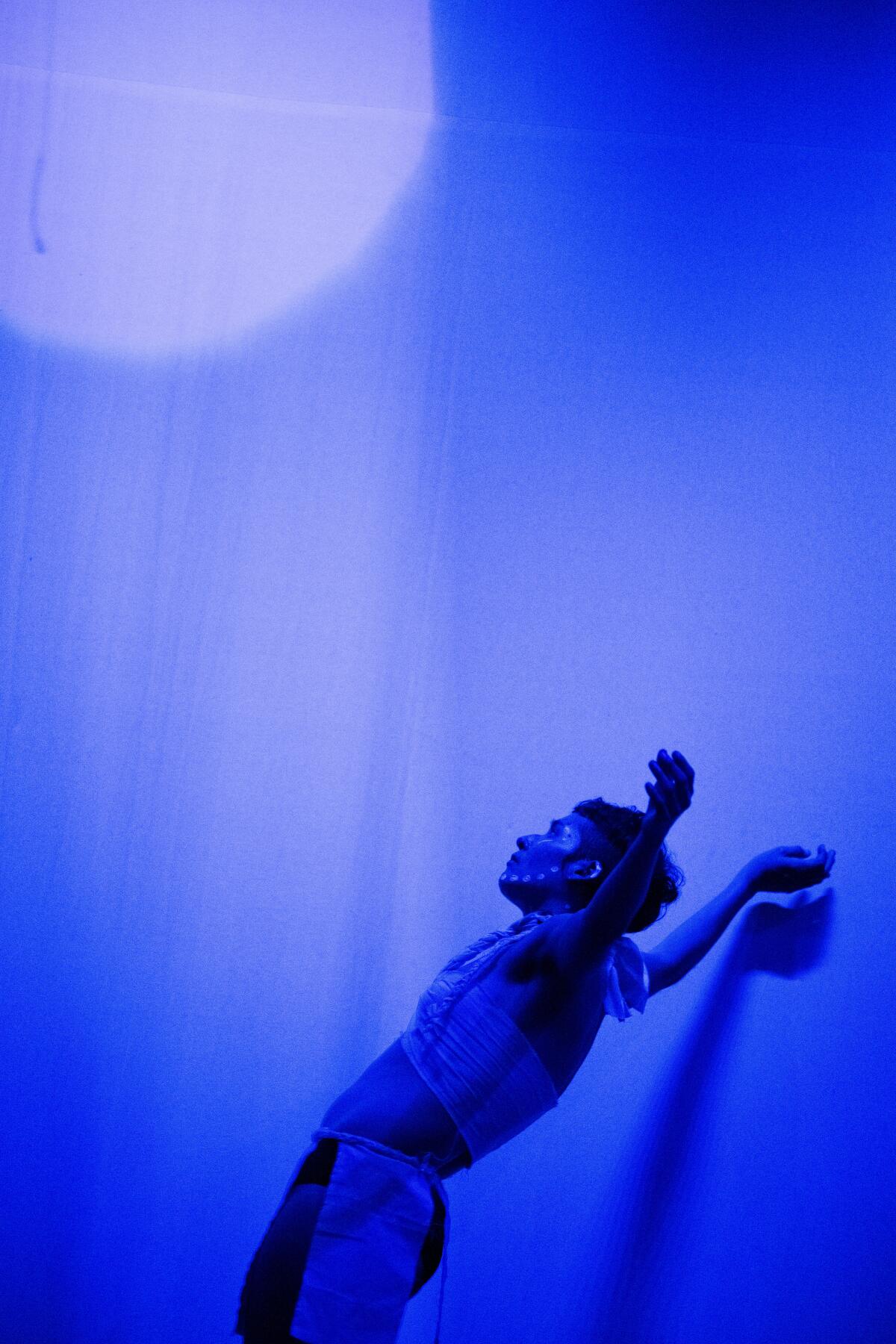
Yoli, who identifies as queer and uses they/them pronouns, taps into their “spiritual path or way of returning to the earth.”
In their work for Ghost Light, Yoli toys with mythology, humor and teatro de la vida — or the theatric expressions and gestures of everyday life. The beauty of pedestrian movements, such as walking, waving and climbing, comes through in their stories.
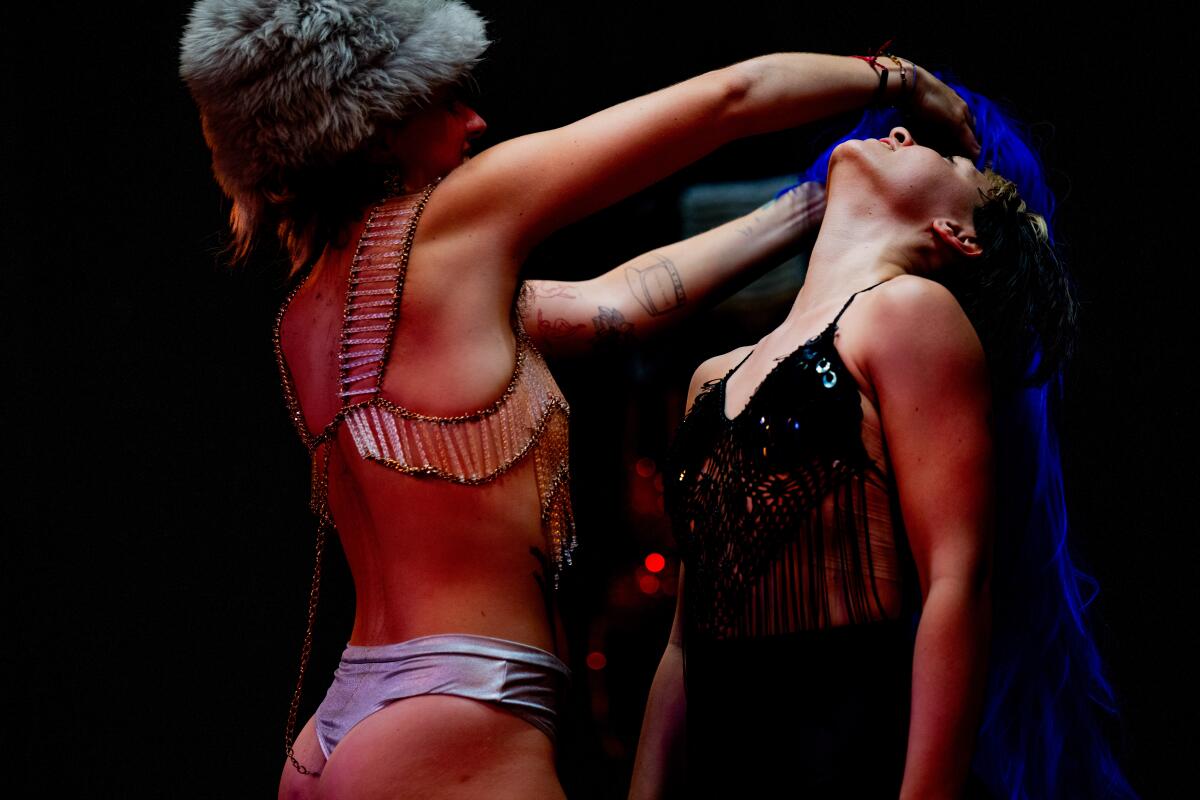
Martin and Thornquest are using the residency for one big experiment as first-time collaborators. Thornquest graduated from CalArts in 2022 and moved to Brooklyn, N.Y., and Martin recently graduated from the same program in 2023. Themes of viewership, audiences and surveillance converge in their residency work. The pair intentionally created with the audience in mind: Is watching consensual or nonconsensual? What is the relationship between those performing?
“I think that we’re interested in bringing in our toolbox of things that we’ve been collecting for a long time like our poetry practice, our feather boas, our investigations around the theater and what it means to be people who have made a home out of the theater,” Martin says.
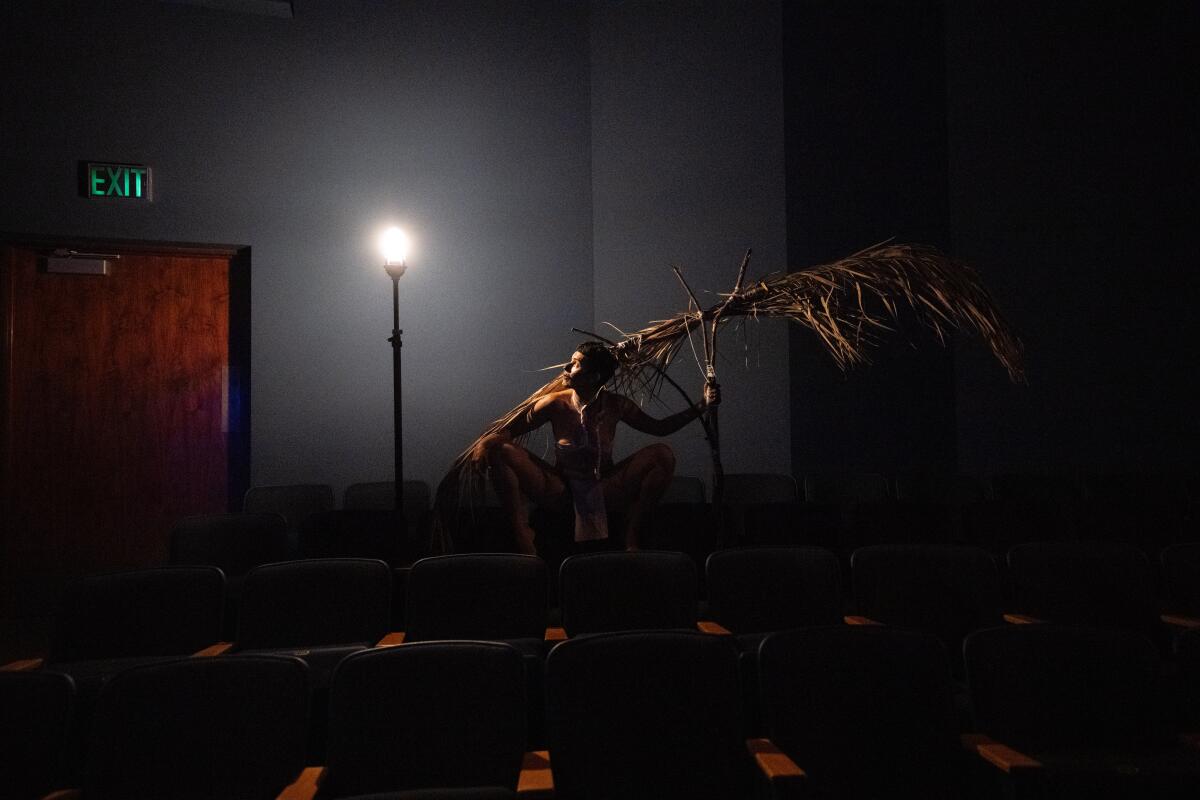
Dance is a historically gendered medium, separating roles on stage between men and women. As nonbinary artists, Martin and Thornquest have struggled to ground themselves throughout their dance careers. “A lot of the spaces that trans people make work in are trans-forward spaces or spaces where it’s about queerness,” Thornquest says. “It’s so refreshing to be allowed to make work about whatever I want.”
Easterling hopes to find new ways of funding so that the program is “not reliant on the community that we’re trying to support.” The goal is to give artists more time in respective venues, or even increase the number of participants each cycle. Rodgers also hopes for the residency to expand to other cities in the future.
In the words of previous resident artist Jas Lin, the participants who come through the residency are “haunting” the space.
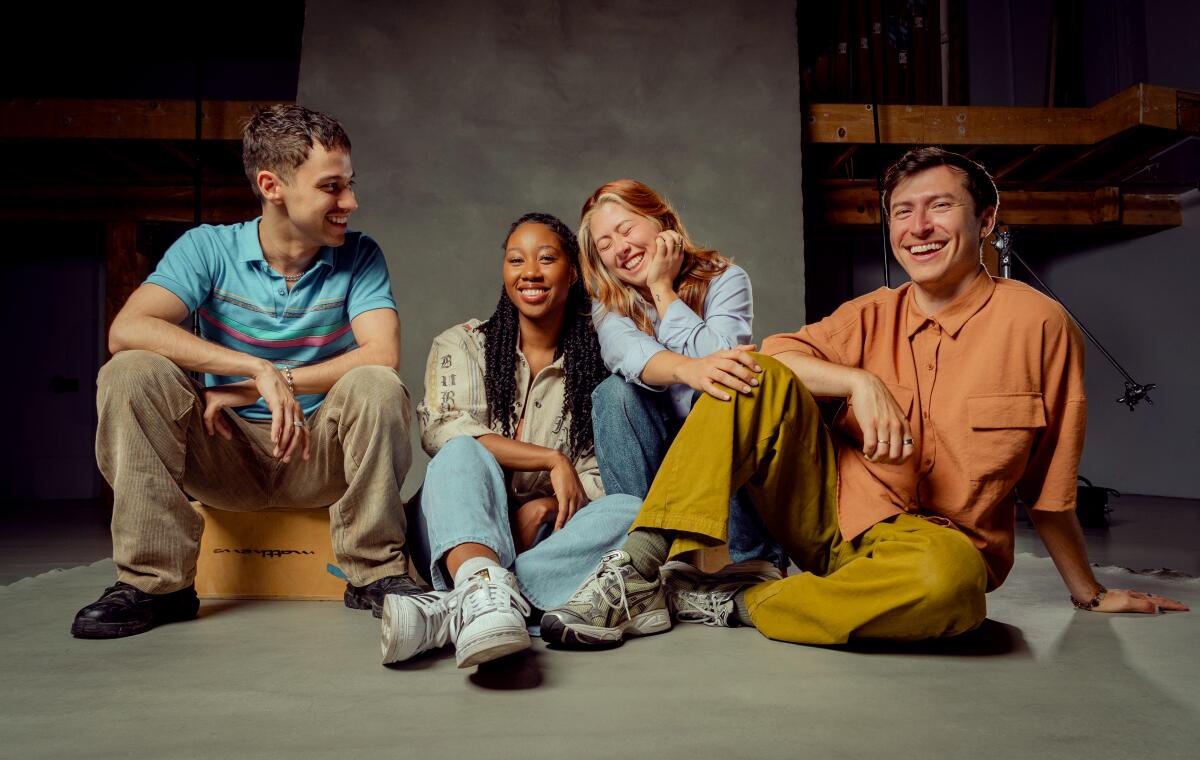
In November, six previous resident artists — Lin, Orpilla, Javon Jones, Jul Wiggins, Emara Neymour Jackson and Tom Tsai — came together for the residency’s first gala to share bits of the work they created with an audience, turning their hauntings into a live presence. It was the first effort of many to keep the artists in community with one another, Easterling says. During the gala, the six stood up and bowed to the audience, Rodgers recalled. Parallel to them were Zambrano, Easterling, Rodgers and Wilking.
“It was like ‘wow’ in the best way,” Rodgers says. “You look around and you see the community that supported us plus new people that came along the way that’s there to witness two years of magic.”
More to Read
The biggest entertainment stories
Get our big stories about Hollywood, film, television, music, arts, culture and more right in your inbox as soon as they publish.
You may occasionally receive promotional content from the Los Angeles Times.
